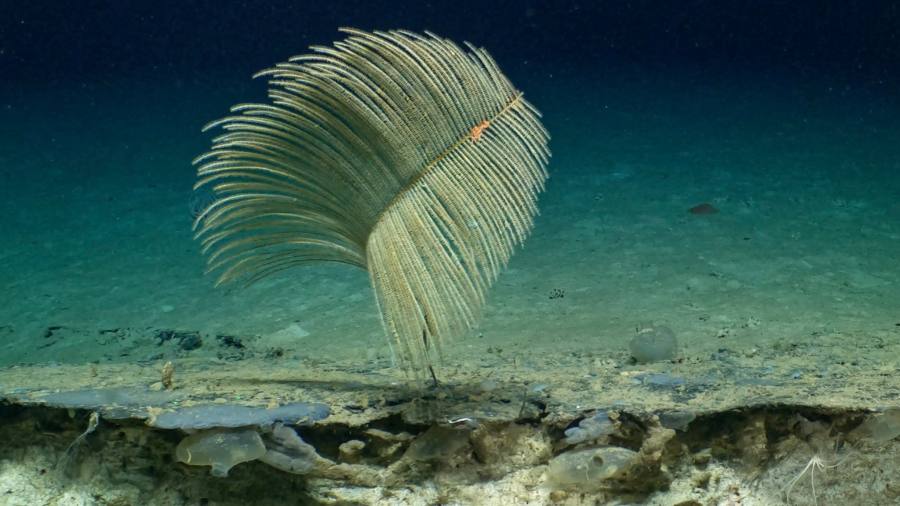Michelle Taylor, director of marine biology at the University of Essex, is still buzzing about “one of the most exhilarating experiences of my life”.
In April, when her submersible crested the ridge of a submerged volcano 600 metres below the ocean surface in the Galápagos marine reserve, its powerful headlights revealed a previously undiscovered coral reef teeming with marine life.
“Having studied deep sea coral for almost two decades and never seeing any live in its natural habitat, I could see a wonderful ecosystem in all its 3D glory, with coral polyps feeding a foot away on the other side of a Plexiglas plate in the submersible Alvin,” Taylor said.
Her experience shows why marine scientists have descended for decades into the depths of the oceans in submersibles, similar to the Titan sub missing on a tourist expedition to the Titanic.
They are protected from crushing pressure by titanium alloy walls that are typically about 7cm thick. For every 10 metres’ depth below water, the pressure increases by one atmosphere.
Alvin, operated by the Woods Hole Oceanographic Institution in the US, is a veteran craft, originally commissioned in 1964 as one of the world’s first deep-ocean submersibles.
Discoveries during 5,000 dives over six decades have included the first deep-sea hydrothermal vents and the first survey of the Titanic wreck at a depth of 3,800 metres in 1986.
Woods Hole says Alvin “has remained state-of-the-art as a result of numerous overhauls and upgrades over its lifetime”. Seven reversible thrusters enable Alvin to hover in the water, manoeuvre over rugged terrain or rest on the seabed. Two robotic arms can manipulate instruments and obtain samples.
A handful of other countries maintain deep-ocean research submersibles. Like Alvin, Japan’s Shinkai can take three people down to 6,500 metres, giving access to 99 per cent of the ocean floor. China’s Jiaolong can descend slightly deeper — to 7,000 metres.
But the Five Deeps expedition, privately funded by the US investor and explorer Victor Vescovo, holds an unbeatable record for deep dives. In 2018 and 2019 his submarine, called Limiting Factor, took him down to the deepest points of the planet’s five oceans — including the bottom of the Mariana Trench in the Pacific, 10,924 metres below the surface.
UK businessman Hamish Harding, one of those on board the missing Titan submersible, travelled to the Mariana Trench with Vescovo in 2021.
For all its scientific rewards, a research trip deep into the ocean was not always a comfortable voyage, said Nicolai Roterman of the University of Portsmouth.
“We had to avoid drinking for 12 hours prior to the eight-hour dive [in Japan’s Shinkai] to keep the bladder empty, which meant I was already a little dehydrated at the start of the dive,” Roterman said. “The conditions are cramped with no room for standing up straight or stretching out, which can lead to numbness and cramp in the limbs.”
There were still relatively few human-occupied submersibles available for deep-ocean research, said Ben Webber of the Climate Research Unit at the University of East Anglia.
“They have provided unique insights into deep-ocean environments and allow scientists to directly observe and experience the deep ocean,” said Webber. “However, in recent decades autonomous and remotely operated submersibles have become increasingly common.”
The British Antarctic Survey, for example, operates several robotic subs to monitor the polar oceans, but none that carry humans. “The issues are similar to those in space exploration,” said Alex Brearley, a BAS oceanographer. “There will be some cases where you want a mission with a crew but usually an autonomous craft is adequate — and far less expensive.”
But for Taylor of Essex university, her recent discovery of a scientifically significant coral reef off the Galápagos islands fully justified a dive in Alvin. “We saw so much more than would have been possible with an autonomous sub,” she said.
Read the full article here




